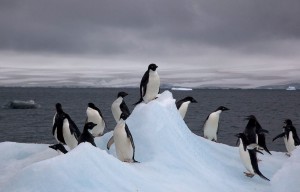
The Canadian Prime Minister Justin Trudeau is said to be taking a “cooler heads” approach to being called “weak” and “dishonest” by Donald Trump after last weekend’s chaotic G7 summit. Canadians are said to be fighting back against Trump by buying Canadian goods instead of American ones.
But there is nothing cool about what is happening to the climate and the increasing implications of Trudeau buying Kinder Morgan’s Trans Mountain pipeline, which will triple the amount of dirty tar sands from Alberta to British Columbia.
Take three pieces of research published this week, which reveal the increasing climate emergency we live in, and reiterate the recklessness of the decision by Trudeau to invest billions in the pipeline.
As Peter Erickson from the Stockholm Environment Institute said yesterday Trudeau’ decision on Kinder Morgan is a global problem for humanity as “adding more than a billion barrels to the global oil market has climate consequences that should be obvious.”
The science is obvious for all to see, including Trudeau:
Two days ago, I wrote about how the African baobabs, iconic symbols of Africa, were dying out. Some have lived for some 2,500 years. I wrote: “When historians write the definitive, convoluted but compelling book on climate change, there will be landmark stand-out moments over the last 30 years when you thought the news of floods, sea-level rise, drought and death would finally have spurred society into collective action that would have helped save future generations.”
I said that the death of baobabs, likely due to climate change, was one of those moments.
And yesterday there was another landmark moment. Yes we have been warned about melting Antarctica for some time – decades now – but yesterday the warnings reached critical, with the publication of two new scientific studies.
As the abstract for the first paper, published in Nature, notes: “The Antarctic Ice Sheet is an important indicator of climate change and driver of sea-level rise.” And we have reason to be worried: According to an internationally renowned team of eighty scientists, the Antarctic ice sheets are now melting at a rate three times as fast as a decade ago, losing 219 billion tons of ice into the ocean every year.
Over the study period, from 1992 until 2017, up to 2,700 billion tonnes of ice was lost, rising sea-levels some half a millimetre a year.
But what is worrying is that the rate of ice lost increased over the last ten years, speeding up over the last five. “The detailed record shows an acceleration, starting around 2002,” Beata Csatho, one of the study authors and a glaciologist at the University at Buffalo, told Chris Mooney at the Washington Post.
Although sea level rise of half a millimetre a year “isn’t going to sound horribly unmanageable” Rob DeConto, an Antarctic expert at the University of Massachusetts at Amherst told the Washington Post, you have to “remember for the Northern Hemisphere, for North America, the fact that the location in West Antarctica is where the action is amplifies that rate of sea-level rise by up to about an additional 25 percent in a city like Boston or New York.” As Antarctica shrinks its gravitational pull weakens, so the water stays further north.
And there is no reason to be complacent about sea level rise from Antarctica. If that study is not worrying enough, a second study found that unless urgent action is taken to tackle climate change in the next decade, melting Antarctic ice could contribute over 25cm to sea level rise of more than a metre by 2070. If the entire west Antarctic ice sheet collapsed sea-levels would rise some 3.5m level rise.
Professor Andrew Shepherd from Leeds University and a lead author of the study told the Guardian this has to be “a cause for concern for the governments we trust to protect our coastal cities and communities”.
Also yesterday, an article in the Conversation found that rice growing especially in Asia, on which billions people depend, will become less nutritious because of climate change. “Our data showed for the first time that rice grown at the concentrations of atmospheric carbon dioxide scientists expect the world to reach by 2100 has lower levels of four key B vitamins,” noted Kristie Ebi, a Professor of Global Health and Environmental and Occupational Health Sciences, University of Washington. These findings reveal that hundreds of millions of people, who rely on rice for calories and proteins, could be at risk.
We can carry on drilling or investing in dirty oil or we can listen to the science. As Chris Mooney noted in the Post yesterday, “Whether Antarctic mass loss keeps worsening depends on choices made today .. Continuing high emissions could deliver massive sea-level rise — but strong compliance with the Paris climate agreement, while unable to stop changes happening now, could help to control how much they worsen.”
The bottom line is that as the world warms, the choices made by Trudeau will exacerbate sea level rise, they will help melt Antarctic ice-sheets, they will threaten the world’s poor and food security and they will carry on endangering the great trees of Africa; no matter how cool he says he is.
